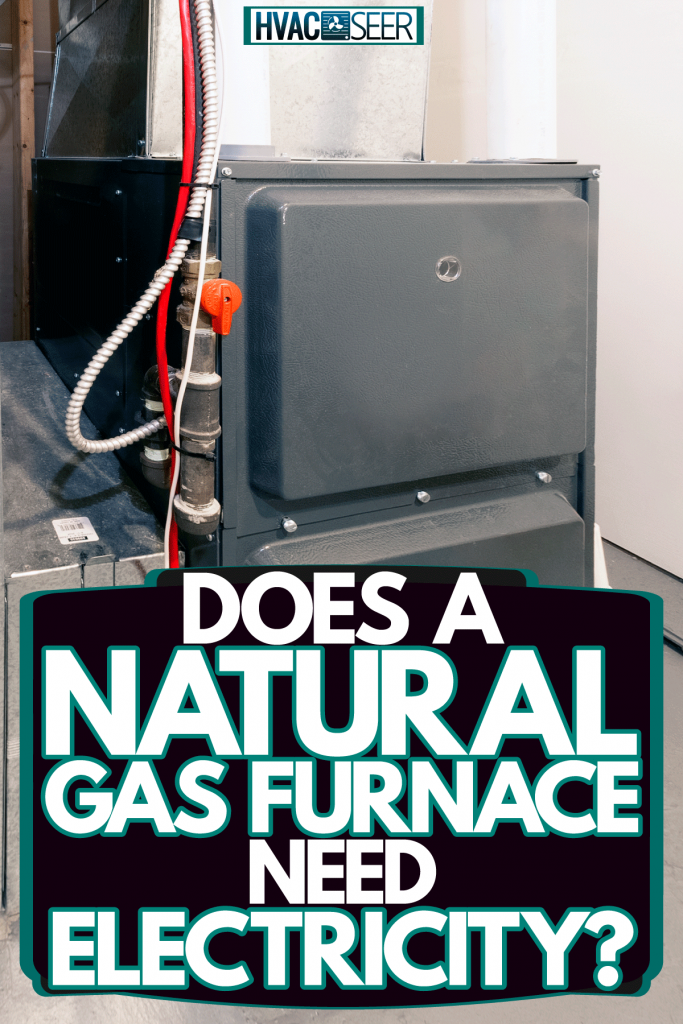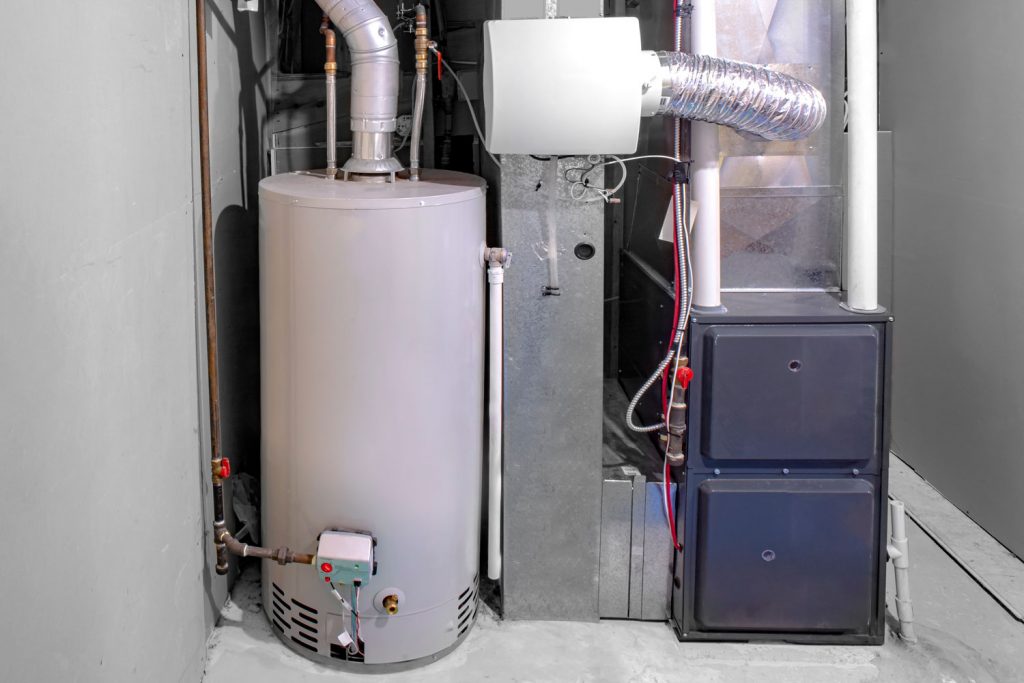Keeping your home comfortable and heated is essential, especially when the temperatures plummet. However, in the event of a power outage or out of plain curiosity, you may question if a natural gas furnace needs electricity. We researched what a natural gas furnace requires to function and how electricity plays a role. Learn more about heating your home, maintaining your natural gas furnace, and protecting this major appliance.
A natural gas furnace requires electricity, not to provide heat but because of the blower. The motor and fan for the blower send heat from the furnace to areas of your home, and it needs electricity to function.
If there isn't any electricity to the furnace, any heat produced in the combustion chamber can't travel anywhere without a working blower fan. Be prepared and keep a backup generator to power your furnace in the event of an electrical outage.
If you still have some questions about a natural gas furnace needing electricity, don't worry. In this post, we'll discuss the topic in more detail. A natural gas furnace is a prominent fixture in a home. Let's uncover why this device requires electricity to function.

Why A Furnace Needs Electricity
A natural furnace relies on several components to send heat produced inside its chamber to desired areas. If the electricity manages to go out for whatever reason, a furnace fueled by natural gas will not work.

Natural gas furnaces are a common appliance in homes to keep them warm and comfortable when temperatures outside are cold.
Here are some components within a gas furnace that need electricity:
- The blower motors
- Circuit boards
- Relays
The only type of natural gas furnace that may still operate despite interruptions in electrical power is a floor furnace.
Similar to other models, they use natural gas to generate heat. However, this type of furnace uses a thermopile generator, and convection sends warmed air into the home.
When The Power Goes Out
If a typical natural gas furnace stops working because of a lack of electricity, contact a certified, experienced HVAC professional for troubleshooting. It is unsafe and unwise to meddle with your natural gas furnace to try and get it to work without electricity.
When there is a loss of electricity to the furnace, don't forget to check up on the following before you get it back up and running again:
- Look for blown fuses
- Check the thermostat
- See if the safety lock is still engaged
- Check the GFI outlet
- Make sure the furnace is on
- Check the control panel
Be aware that most furnaces are equipped with a safety system to prevent the furnace from working if the electricity goes out. If there is a power outage, do the safe thing, and turn off the power to the furnace.
Do regularly check on your natural gas furnace to ensure it is in proper working order and that any power outages have not damaged any components that need electricity to work.
How Do I Run My Furnace When The Power Is Out?
If you are in an area prone to power outages and have a natural gas furnace, stay prepared and invest in a generator. Make a smart call and contact your local HVAC technician to connect a furnace to a generator.
The chipboard and other components that require electricity to send heat from the furnace to your home are sensitive. Do not try to hook up a generator to your furnace without professional assistance.
Most modern furnaces are designed with an electrical kickstart to keep the flame alight as a safety feature. A natural gas furnace will shut down when the power goes out because of a storm, accident, or unforeseen event.
Older, traditional gas furnaces may still power up if the flame is lit, but heat cannot be delivered throughout the abode without electricity. The gas valve in modern furnaces will automatically shut off to stop the furnace from operating as a safety feature.
If the electricity goes out, cut power to the furnace and other sensitive appliances in your home to prevent damage. Don't tinker with your furnace and get an HVAC tech to help troubleshoot your furnace and hook it up to a backup generator.
Check out this generator on Amazon.
Do You Have To Relight The Furnace After A Power Outage?
When there is a power outage, most furnaces will automatically shut off gas and kick off the pilot light for your safety. It will be necessary to relight the furnace once power has been restored to function correctly.
Under no circumstance should you attempt to light a furnace if there is no electricity flowing to the appliance. The gas valve shuts down, preventing the furnace from functioning.
If you have a traditional furnace, the power going out might not impact the flame. However, the pilot should be out, and the furnace should be turned off to prevent further problems or damage.
When the electricity comes back out, check out the furnace to ensure there are no problems with the electrical components.
Modern furnaces will light the pilot once electricity is restored and the appliance is turned back on. Traditional furnaces will require you to relight the furnace.
If you are uncomfortable troubleshooting your furnace after a power outage, call an HVAC technician to help you out. You want to make sure that your furnace is safe to turn on and all components are in working order before relighting the appliance.
Do not tamper with the pilot, or other key parts of the furnace following a power outage, unless you are sure of what you are doing. There may be safety features that are still active after the electricity goes out, which may impede the furnace's functioning, whether the pilot is lit or not.
Read More: Furnace Pilot Light Won't Stay Lit – What To Do?
How Much Electricity Does A Natural Gas Furnace Use?
The average natural gas furnace uses less than 600 watts to run. At 13 cents per kWh, if you were to run a furnace for 2 hours each day, it would cost around $0.156. Whenever possible, seek out an energy-efficient furnace for your home for optimal heating and lower bills.
It is typically less expensive to use a natural gas furnace to heat a home than to rely on electric heat sources. However, electric furnaces are usually safer and quieter with fewer components.
The average household will use between 50 to 150 million BTUs to heat their home in the wintertime. Electric furnaces often use between 10 to 50 kilowatts to run and are highly efficient, but they come with a higher cost to run because of the rates for electricity.
Is A Gas Furnace Expensive To Run?
For every thousand cubic feet in a home, the price to run natural gas is a little under $10, at $9.86. Opt for a furnace that is energy-efficient so that a minimum of energy used by the furnace will offset the cost, with a maximum of energy consumed going toward heat output.
Depending on your geographical location and rates from your local energy provider, a natural gas furnace can easily be moderately expensive to run or very pricey.
However, natural gas is a lot cheaper to heat a home compared to the cost of running an electric heater. The factors that impact the cost of running a furnace are the cost of gas, how efficient the appliance is, and how often and how long you have your furnace running.
In Closing
We hope you feel more confident about what to do when an electrical outage impacts your natural gas furnace's function.
Most modern furnaces are equipped with safety features to shut off the gas flow and prevent the furnace from functioning until electricity is restored. Get familiar with your natural gas furnace and understand whether it is a traditional or a modern model.
Do not try to troubleshoot your furnace if the power goes out. Contact your local HVAC professional to assist with assessing your furnace, hooking it up to a backup generator, and ensuring it resumes heat delivery safely.
There are sensitive parts within a furnace that need electricity to function that could become damaged in the event of a power outage. If you have problems restarting your furnace and heating your home, hiring a professional to be of service is the best option.
Before you go, don't miss out on the following helpful posts:

